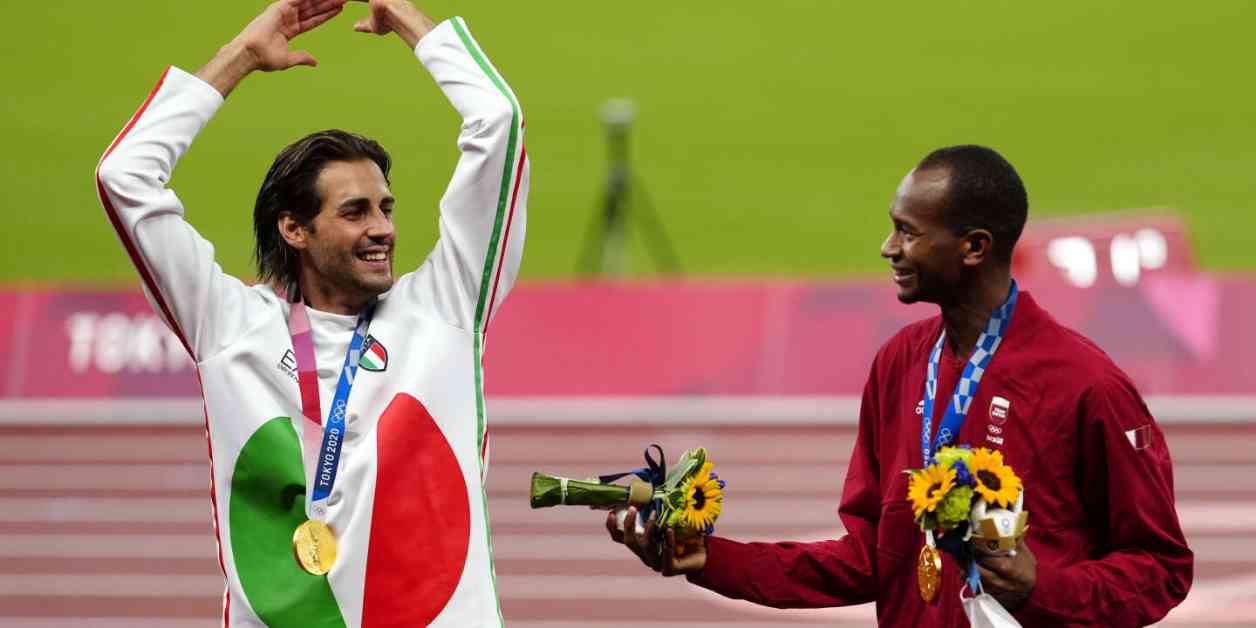Since the inception of the modern Olympics in 1896, it has not been uncommon for multiple winners to finish on the podium. However, the choice made by Italian and Qatari jumpers in the final in Tokyo in the summer of 2021 marked Olympic history.
At first glance, this is the essence of the Olympic Games: every four years, the world’s best athletes compete to distinguish themselves. It is about the metal of their medal, as important to them as it is to the ranking of nations. So, naturally, everyone fights to the end.
However, the most beautiful story of the previous edition in Tokyo was the one of renouncing the duel. That of Italian Gianmarco Tamberi and Qatari Mutaz Barshim, crowned together in the high jump, after a scene that will be etched in collective memory for a long time. On August 1, 2021, the two men were tied after their competition: they both cleared 2.37m, then failed three times at 2.39m.
The judge then proposed a tiebreaker to determine which of the two would become the Olympic champion. « Can we have two gold medals? » Mutaz Barshim asked. The official’s response was, « It’s up to you to decide [in accordance with article 26.8.4 of the World Athletics regulations]… » Before he could finish his sentence, the Qatari extended his hand to the Italian. « Historic, my friend, » he said, before they embraced each other.
« We are very competitive, but sometimes something happens that has a greater significance, » Mutaz Barshim told Le Monde three years later. This decision was « probably the greatest moment » of the Tokyo Olympics, he believes. It was also a source of immense pride that « grows with time. »
Gianmarco Tamberi also never regretted this outcome. « On the contrary, » he insists. « It is a gesture of friendship and sportsmanship. I remember it with extreme pleasure: sharing the best moment of your life with a friend is incomparable, even better than winning alone. » The Italian would not have done it with just anyone: « Winning the Games is hard work. So, we are not ready to share it with someone we do not respect. »
The medal sharing tradition is as old as the modern Olympics: it has occurred at each edition of the Summer Olympics since 1896 – it even happened ten times in 1992 in Barcelona – totaling 121 awards, including 31 gold medals, in all sports. It is worth noting that this count does not include the two bronze medals originally planned since 1952 for boxing, 1964 for judo, and 2008 for taekwondo and wrestling.
Most of the time, the sharing is not the result of a deliberate choice by the athletes but the result of a tie in time or score in judged events, such as gymnastics. And sometimes there are absurd cases. Like the Iranian wrestler Komeil Ghasemi and the Russian Bilyal Makhov, crowned Olympic champions in 2012 in the +120 kg category… in 2019! The reason for this late double coronation? The disqualification for doping of the titleholder and the runner-up.
The story of Tamberi and Barshim’s medal sharing in Tokyo 2021 will undoubtedly be remembered as one of the most touching moments in Olympic history, showcasing the true spirit of sportsmanship and camaraderie that transcends competition.

